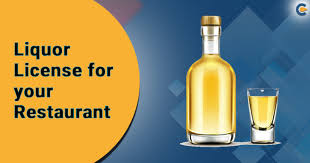Operating a business in the liquor industry comes with a set of responsibilities and legal obligations. Understanding and complying with liquor laws and regulations is crucial for the success of your establishment. Failure to adhere to these rules can result in severe consequences, including fines, license revocation, and legal actions. This comprehensive guide will provide insights into the various aspects of ensuring compliance with liquor laws, covering licensing requirements, responsible service of alcohol, age verification, hours of sale, premises safety, marketing and advertising, handling inspections, and staying informed.
Understanding Liquor Laws and Regulations:
Before diving into the specifics of compliance, it’s essential to have a solid understanding of the overarching liquor laws and regulations that govern your business. These regulations can vary at the local, state, and federal levels, so it’s crucial to be well-informed about all applicable rules.
Local and State Regulations:
Local and state regulations often dictate the specific requirements for obtaining and maintaining a liquor license. These regulations may include zoning restrictions, operational guidelines, and compliance with health and safety standards. It’s important to familiarize yourself with the specific laws in your jurisdiction to ensure compliance.
Federal Regulations:
In addition to local and state regulations, the Alcohol and Tobacco Tax and Trade Bureau (TTB) enforces federal regulations related to the production, distribution, and sale of alcoholic beverages. Understanding federal requirements is crucial, especially for businesses engaged in the importation or interstate commerce of alcoholic beverages.
Obtaining the Right Licenses:
One of the primary steps in ensuring compliance is obtaining the necessary licenses for your liquor establishment. This process involves submitting applications, meeting specific criteria, and paying applicable fees. The types of licenses required may include retail licenses, wholesale licenses, and special event permits. Consult with local and state regulatory agencies to determine the exact licenses needed for your business.
License Renewal and Compliance Checks:
Licenses typically have expiration dates, and it’s crucial to renew them on time. Additionally, regulatory agencies may conduct compliance checks to ensure that establishments are adhering to the terms of their licenses. Regular self-audits can help identify and address potential compliance issues before they become serious problems.
Responsible Service of Alcohol:
Training and Education:
Promoting responsible service of alcohol is not only a legal requirement but also an ethical responsibility. Training your staff to recognize signs of intoxication, understanding the effects of alcohol, and implementing responsible service practices are essential. Many jurisdictions offer responsible beverage service training programs that can be beneficial for both staff and management.
Monitoring Alcohol Service:
Implementing measures to monitor alcohol service is critical for compliance. This may involve limiting the number of drinks served to an individual, refusing service to visibly intoxicated patrons, and having a clear policy for handling challenging situations. Regular staff meetings and training sessions can reinforce these practices.
Age Verification and ID Checks:
Importance of Age Verification:
Preventing the sale of alcohol to minors is a fundamental aspect of liquor compliance. Establishments must have robust age verification processes in place to ensure that only individuals of legal drinking age are served. Failing to do so can result in severe penalties and damage to your business’s reputation.
Best Practices for ID Checks:
Implementing effective ID checking procedures is essential. Train your staff to request and verify identification from anyone who appears to be under the legal drinking age. Acceptable forms of identification may include driver’s licenses, passports, and state-issued ID cards. Consistency in applying these checks is crucial to avoiding legal issues.
Managing Hours of Sale:
Opening and Closing Times:
Liquor laws often specify the permissible hours during which alcohol can be sold. Ensure that your business adheres to these regulations, including opening and closing times. Violating these hours can lead to fines and other penalties. Keep in mind that these hours may vary depending on the type of establishment and local regulations.
Special Events and Extended Hours:
If your business plans to host special events or operate during extended hours, it’s essential to obtain the necessary permissions and licenses. Special event permits may be required, and compliance with regulations during these events is crucial. Communicate with local authorities and obtain the proper approvals well in advance.
Safe and Clean Premises:
Maintaining a Safe Environment:
Ensuring the safety of patrons and staff is a top priority for liquor establishments. This includes implementing security measures, such as surveillance systems, well-trained security personnel, and clear emergency procedures. Regularly assess the safety of your premises and address any potential hazards promptly.
Health and Sanitation Standards:
In addition to physical safety, compliance with health and sanitation standards is vital. Regularly inspect and maintain facilities to meet hygiene requirements. This includes proper storage and handling of alcoholic beverages, as well as adherence to food safety standards if your establishment serves food.
Marketing and Advertising Compliance:
Restrictions on Promotion:
Liquor advertising is often subject to strict regulations to prevent the promotion of excessive drinking or targeting minors. Familiarize yourself with the guidelines regarding the content and placement of alcohol-related advertisements. This includes restrictions on using certain themes, images, and language that may appeal to underage individuals or encourage irresponsible drinking.
Adhering to Labeling Requirements:
If you are involved in the production or distribution of alcoholic beverages, comply with labeling requirements. These may include providing accurate information about alcohol content, health warnings, and origin. Failure to meet labeling standards can lead to regulatory issues and impact the marketability of your products.
Handling Inspections and Audits:
Preparation for Regulatory Audits:
Regulatory agencies may conduct inspections and audits to ensure compliance with liquor laws. Be prepared for these visits by maintaining organized records, having staff trained on compliance protocols, and addressing any identified issues promptly. Proactive measures can mitigate the impact of regulatory audits on your business.
Conclusion:
In conclusion, ensuring compliance with liquor laws and regulations is a multifaceted task that requires diligence, ongoing education, and a commitment to responsible business practices. From understanding local, state, and federal regulations to obtaining the right licenses, implementing responsible service of alcohol, and staying informed about industry changes, every aspect plays a crucial role in maintaining a legally sound and successful liquor establishment.
By prioritizing responsible business practices, investing in staff training, and staying proactive in addressing compliance issues, you not only safeguard your business from legal consequences but also contribute to the well-being and safety of your patrons. Compliance is not just a legal obligation; it’s a fundamental aspect of running an ethical and sustainable liquor business.





